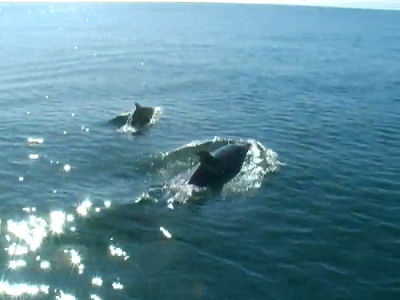Seagulls tend to prefer 'food held by humans'

If you are picking up food on the deck of a harbor or a ship, seagulls flying around may approach you quickly and fly with food. Research results are announced that wild gulls, which should be very cautious to humans, rob food from human hands because `` gulls tend to prefer the food that humans have in their hands '' Was.
Urban herring gulls use human behavior cues to locate food | Royal Society Open Science
Seagulls hunger for food touched by human hands | Popular Science
https://www.popsci.com/story/animals/seagull-food-human-touch/
The team at Exeter University 's Center for Ecological Conservation conducted two experiments on adult herring gulls in the southwestern United Kingdom.
In the first experiment, the experimenter approached the herring gull wandering around the harbor, facing the herring gull, and placed the pancakes on the ground, one on each side, about 120 cm apart. In addition, the experimenter held one of the two pancakes in his hand or approached his face for 20 seconds and placed it on the ground again. We then checked which pancake the herring gull was interested in.
Then, out of a total of 38 herring gulls, 24 immediately tried to add pancakes placed on the ground, and 19 of them chose the food picked by the experimenter.
Also, the second experiment was done in a different place from the first, using a sponge cut to the same shape and size as the pancake, and doing the same experiment as the first. Targeting 41 herring gulls, 32 of them approached the sponge, and 23 poke at the sponge. Of these, 15 responded to sponges picked up by humans.
From the results of this experiment, the research team argued that herring gulls tended to be interested in 'new objects that other animals might be wary of,' especially those touched by humans. Also, in the second experiment using a sponge that was not food, even when observing where humans picked up, the percentage of herring gulls holding the sponge did not exceed the level by accident, Researchers say that not only what humans have in their hands, but whether they are food can also be important in attracting seagulls' attention.

The research team says, 'Despite the increasing prevalence of human-wildlife interactions, 'how wildlife can provide direct human cues to exploit human resources in urban environments. Little research has been done on how to use it. '
`` The herring gull is unlikely to be the only wildlife that uses human behavior in an urban environment, '' said the research team, saying that other wildlife that overlaps with humans also rely on human behavior. Suggested the possibility of finding food.
Related Posts:







